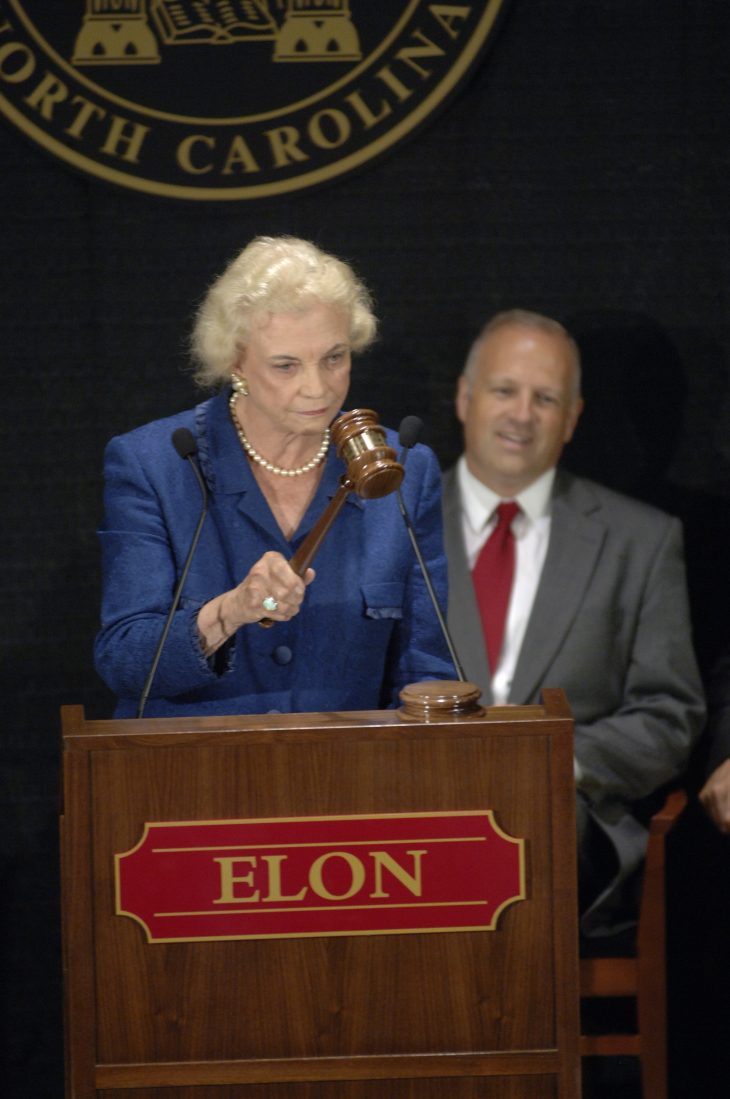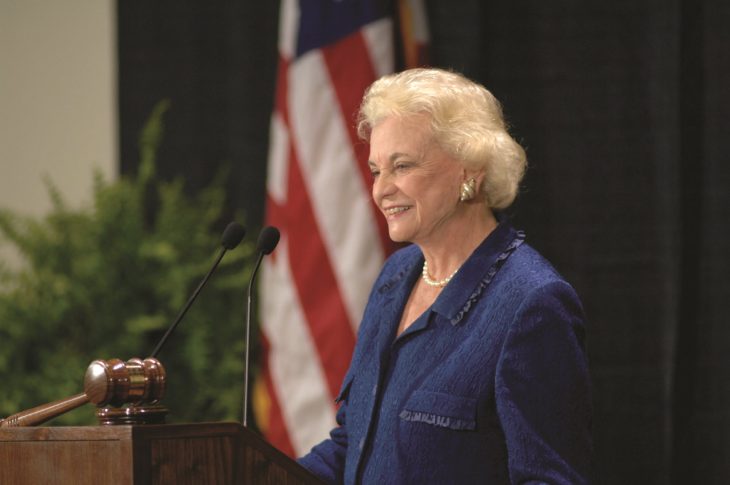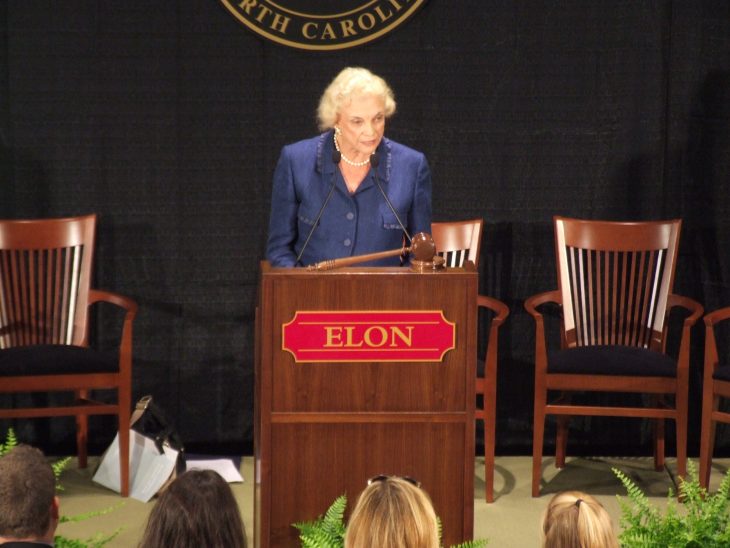With three bangs of a gavel, retired U.S. Supreme Court Justice Sandra Day O'Connor formally dedicated the Elon University School of Law on Sept. 19.
With three bangs of a gavel, retired U.S. Supreme Court Justice Sandra Day O’Connor formally dedicated the Elon University School of Law on Sept. 19.
O’Connor was joined at the dedication by law students and faculty, along with friends and supporters of the school in the law school library, the lower floor of the H. Michael Weaver Building in downtown Greensboro. At the invitation of Elon University President Leo M. Lambert, she pounded the special commemorative gavel on the podium and declared she was delighted to dedicate the school.
Listen to Justice O’Connor’s remarks at the law school dedication
Listen to Justice O’Connor’s Convocation address at Elon University

“It’s quite clear that Elon Law is already a force with which to be reckoned,” O’Connor said. “You have created a marvelous law school facility here. It’s equipped to meet the demands of contemporary legal education. You have an operative courtroom with a real live judge sitting in it … and you have electronic everything at your fingertips.”
O’Connor told the charter law school class that they have an opportunity to shape the law school and establish a precedent.
“I encourage you to seize that opportunity,” she said. “You’re really fortunate to begin your introduction to the legal profession at an innovative place like Elon.”
O’Connor encouraged students to be practical, to develop their skills as negotiators and to always stay tuned to “the real world.” She said lawyers serve two masters, their clients and the law itself.
“A great lawyer is always mindful of the moral and social aspects of the lawyer’s position as an officer of the court.”

O’Connor said she wanted to recruit the law students to help protect and promote our constitutional system of checks and balances.
“Judicial independence is a bedrock value of American government. Unfortunately its value is a lesson that some of our current leaders may not have learned,” she said, referring to some calls for mass impeachment of judges or threats to withhold funding from courts.
“Judicial independence doesn’t happen all by itself. It’s very hard to create. It’s easier than most people imagine to destroy, and we have to be vigilant against those who would strong-arm the judiciary.”
Responding to a question from a student about the most difficult questions facing the courts, O’Connor brought up the detainment of suspected terrorists. “What do we do with them besides putting them in Guantanamo Bay? Are there procedures whereby the grounds for detention can be challenged? These are tough questions. They balance issues concerning our survival as a nation and at the same time our commitment to due process and to fundamental procedures being available in courts.”

O’Connor told students they must learn how to balance the demands of family, work and service to their communities. She encouraged them to get involved as civic leaders, saying they can “make a difference in a very real sense.”
Law student Alix Hazel said O’Connor is a “role model” for anyone studying the law. “She is really inspiring,” Hazel said. “She handled every question with poise and elegance. Seeing her is really a treat.”
Student Amy Holthouser said at first she was “in awe” at seeing O’Connor, but then realized she is “both impressive and down to earth … easy-going but firm in her belief that the judiciary must interpret the law.”
Holthouser said Elon law students have been reading some of O’Connor’s Supreme Court opinions and studying the complex issues that are involved. “Just to hear her thoughts on the detainee issue is very interesting,” Holthouser said.
“It was awesome having her here today,” said law student Mark Jetton. “We’ve been in class a month and we’ve read her opinions. Then, to meet somebody that you’ve read about really adds meaning to it. To realize that we’re going to be in the same legal profession as Sandra Day O’Connor is inspiring.”
Student Megan Greene said she was particularly inspired by meeting the nation’s first female Supreme Court justice. “It gives me a lot of hope that I’m going to reach my goals,” Greene said. “We’re just beginning in this profession and she was very gracious with us. I felt she really connected with us on a personal level.”


